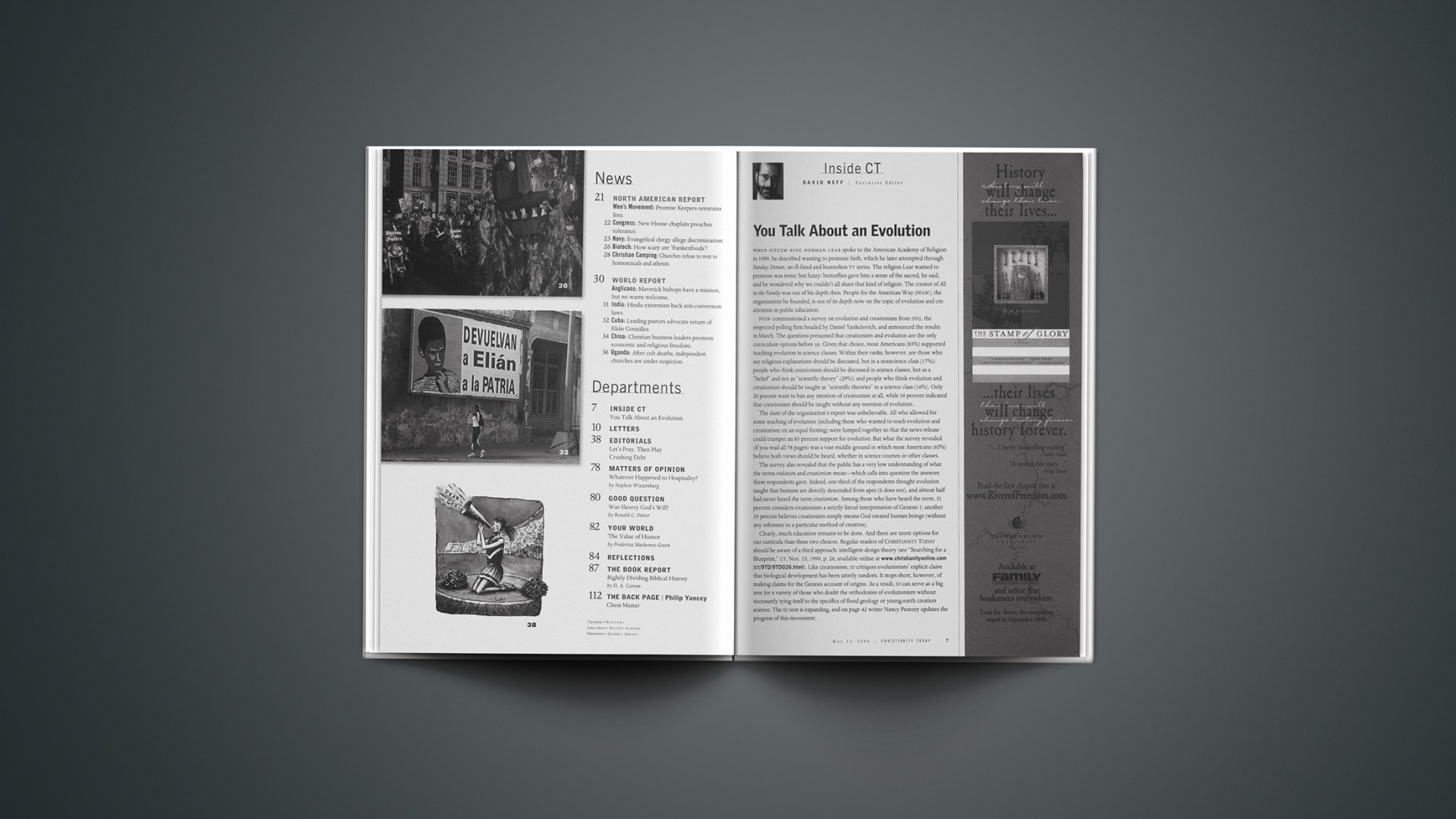When sitcom king Norman Lear spoke to the American Academy of Religion in 1989, he described wanting to promote faith, which he later attempted through Sunday Dinner, an ill-fated and humorless TV series. The religion Lear wanted to promote was irenic but fuzzy: butterflies gave him a sense of the sacred, he said, and he wondered why we couldn’t all share that kind of religion. The creator of All in the Family was out of his depth then. People for the American Way (PFAW), the organization he founded, is out of its depth now on the topic of evolution and creationism in public education.PFAW commissioned a survey on evolution and creationism from DYG, the respected polling firm headed by Daniel Yankelovich, and announced the results in March. The questions presumed that creationism and evolution are the only curriculum options before us. Given that choice, most Americans (83%) supported teaching evolution in science classes. Within their ranks, however, are those who say religious explanations should be discussed, but in a nonscience class (17%); people who think creationism should be discussed in science classes, but as a “belief” and not as “scientific theory” (29%); and people who think evolution and creationism should be taught as “scientific theories” in a science class (16%). Only 20 percent want to ban any mention of creationism at all, while 16 percent indicated that creationism should be taught without any mention of evolution.The slant of the organization’s report was unbelievable. All who allowed for some teaching of evolution (including those who wanted to teach evolution and creationism on an equal footing) were lumped together so that the news release could trumpet an 83 percent support for evolution. But what the survey revealed (if you read all 58 pages) was a vast middle ground in which most Americans (63%) believe both views should be heard, whether in science courses or other classes.The survey also revealed that the public has a very low understanding of what the terms evolution and creationism mean—which calls into question the answers these respondents gave. Indeed, one-third of the respondents thought evolution taught that humans are directly descended from apes (it does not), and almost half had never heard the term creationism. Among those who have heard the term, 31 percent considers creationism a strictly literal interpretation of Genesis 1; another 19 percent believes creationism simply means God created human beings (without any reference to a particular method of creation). Clearly, much education remains to be done. And there are more options for our curricula than these two choices. Regular readers of Christianity Today should be aware of a third approach: intelligent-design theory (see “Searching for a Blueprint,” CT, Nov. 15, 1999, p. 26; available online at www.ChristianityToday.com/ct/9td/9td026.html). Like creationism, ID critiques evolutionists’ explicit claim that biological development has been utterly random. It stops short, however, of making claims for the Genesis account of origins. As a result, id can serve as a big tent for a variety of those who doubt the orthodoxies of evolutionism without necessarily tying itself to the specifics of flood geology or young-earth creation science. The ID tent is expanding, and on page 42 writer Nancy Pearcey updates the progress of this movement.
Copyright © 2000 Christianity Today. Click for reprint information.










